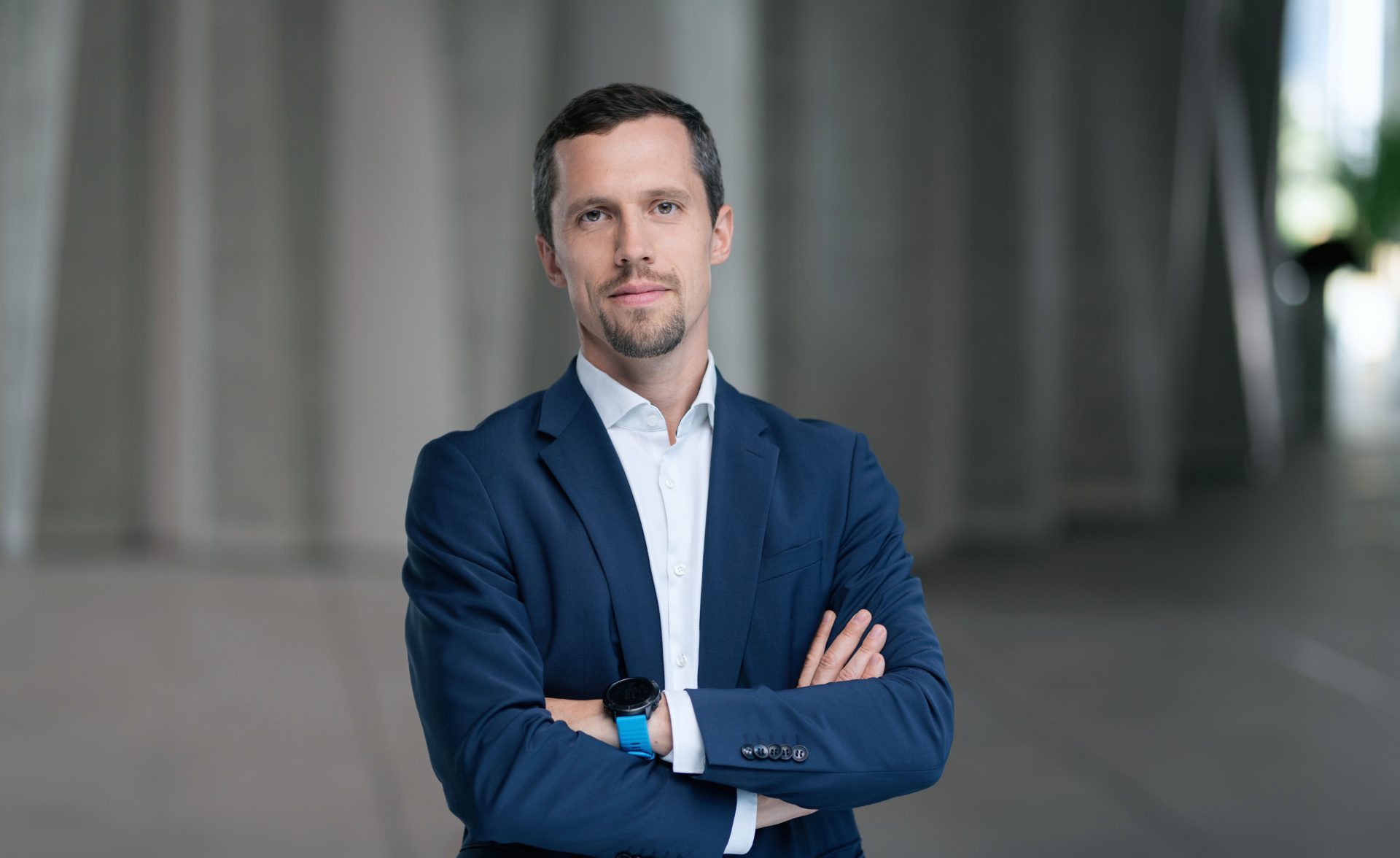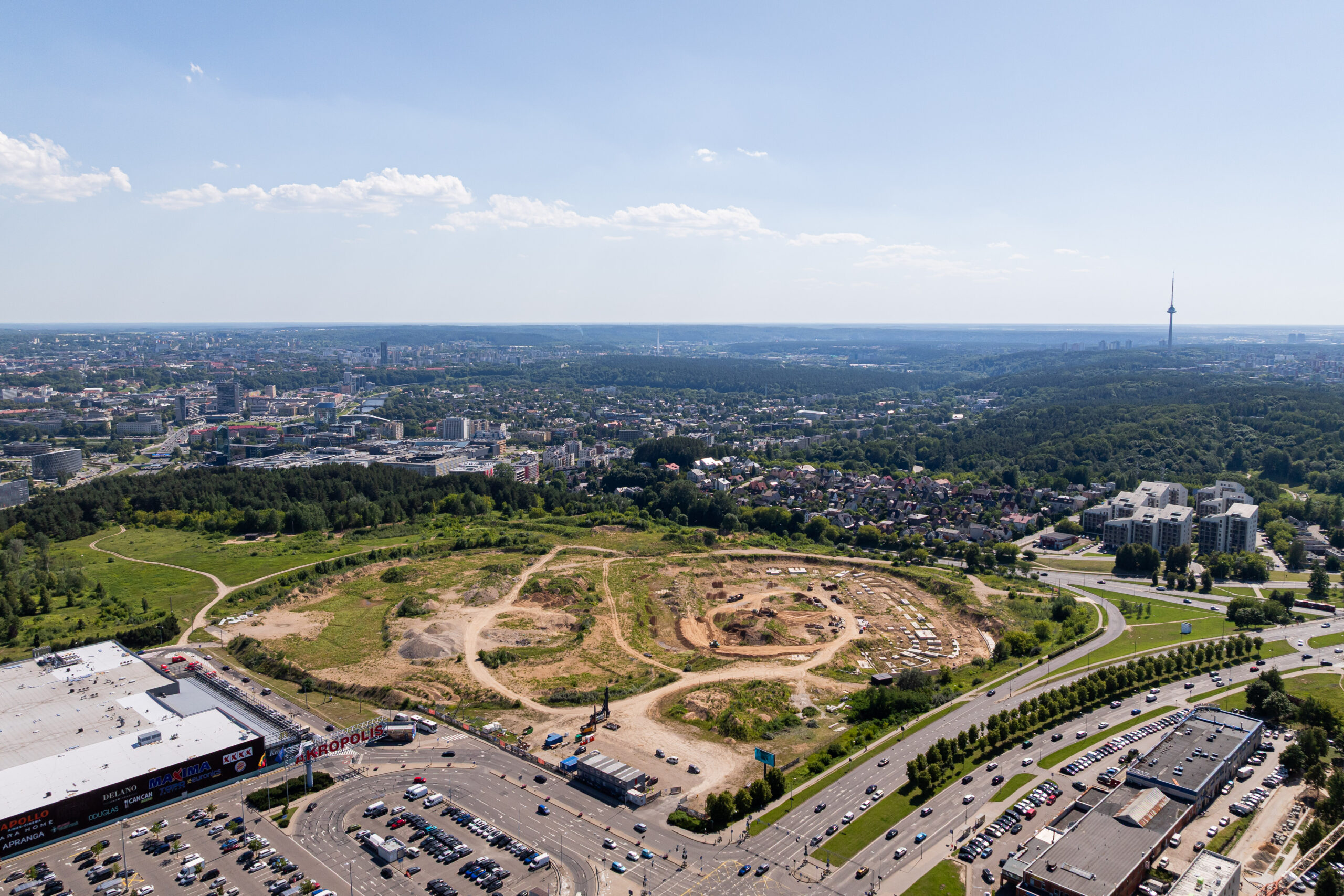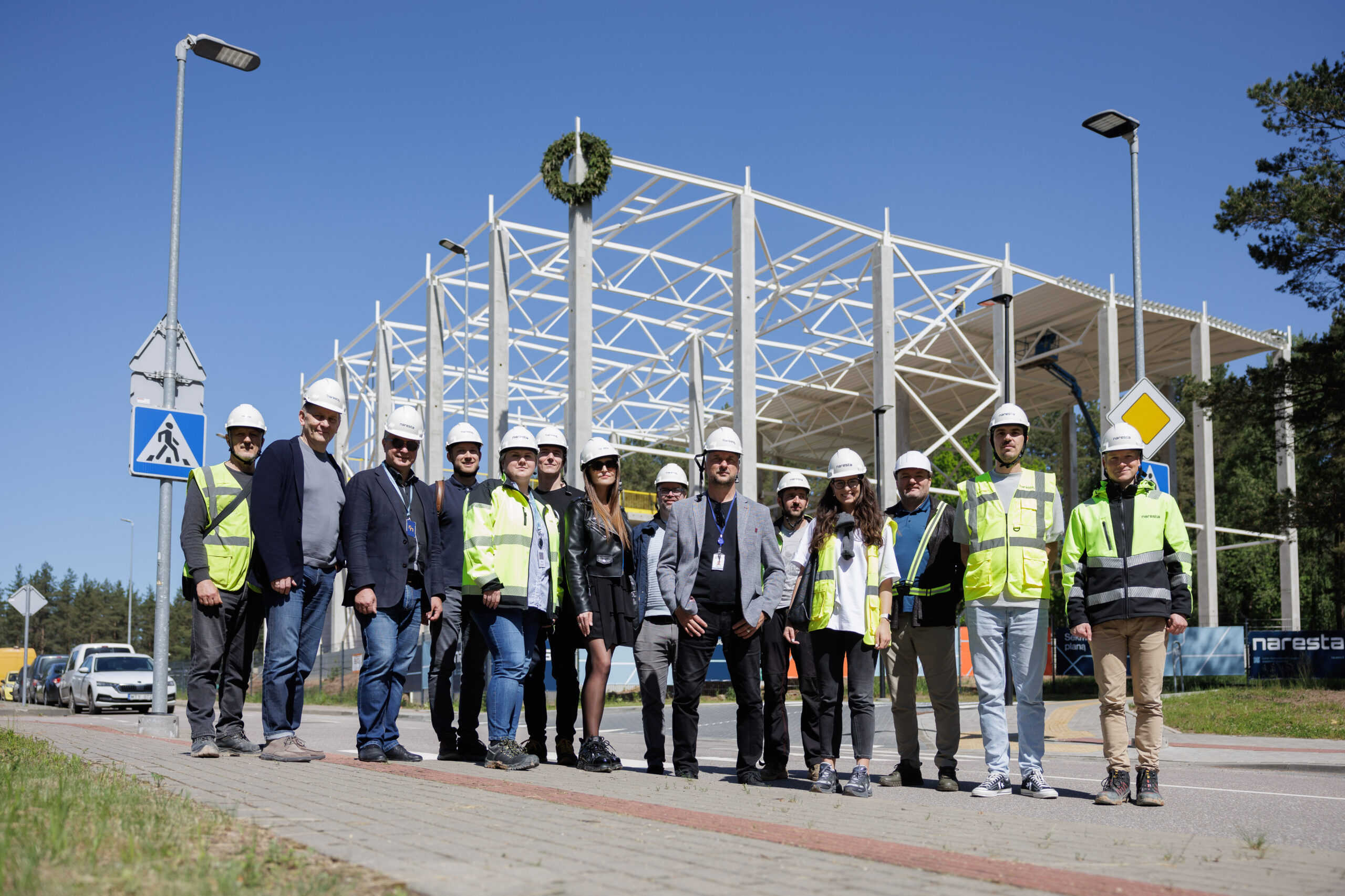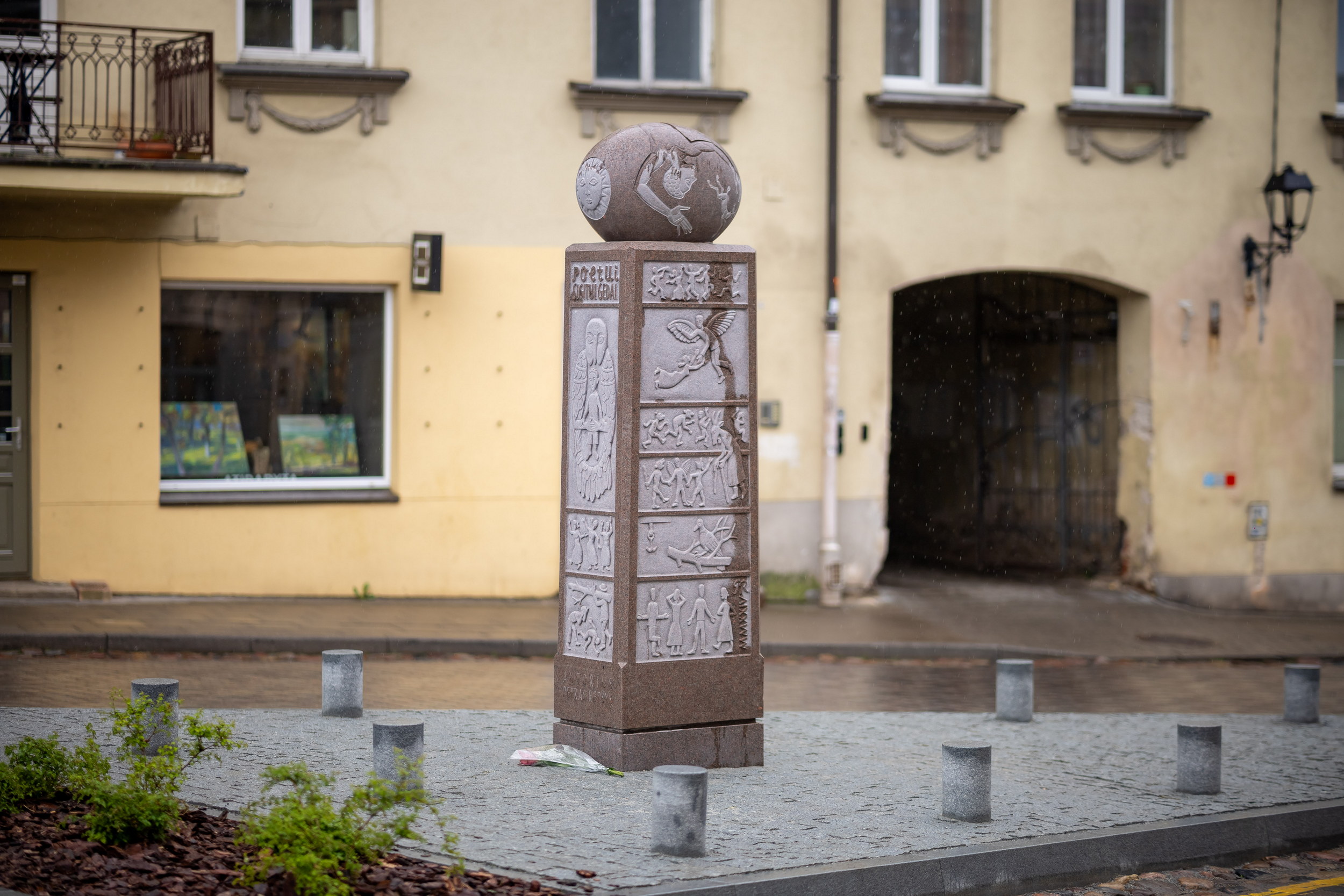Tadas Grincevičius: A disease in the construction sector that we normalize rather than cure

Delayed construction projects — with costs increasing by tens of percent or even several times during the process — are an issue faced not only by investors developing large, complex projects, but also by individuals in the country who decide to build a house or renovate an apartment. According to Tadas Grincevičius, CEO of Naresta, one of the largest construction companies in Lithuania, constantly increasing construction timelines and swelling budgets have already become commonplace in our country. However, the expert notes that it is wrong to accept and normalize this situation.
“The fact that the works started under the pre-agreed plan are not finished on time is no exception for a long time – this is considered normal. Let us note that the deadlines for the completion of construction of larger, important objects for citizens are usually very abstract and even preliminary — we have become accustomed to not knowing when exactly one or the other works will end.
This trend is not Lithuanian, it exists all over the world, because managing complex and large projects is a big challenge regardless of the region in which the project is implemented. However, the normalization of the situation only makes it worse: The reasons for the problems are very clear, you just need to take action to solve them,” says T. Grincevičius.
The expert emphasizes that recent delays and rising costs in the Lithuanian market are not solely the fault of construction companies: with the permit and approval bureaucracy in the capital becoming exceptionally cumbersome, real estate developers themselves have also begun to significantly miss agreed deadlines. Projects often stall because of overdue payments, or because construction has started without not securing the necessary financing.
The global phenomenon of delays and cost overruns
According to the expert, the reality is that in construction projects delays and cost overruns have become as common as helmets on construction sites.
“A 2022 report by McKinsey, an international management consulting firm, shows that 98% of construction projects worldwide are delayed or exceed their estimated costs. Meanwhile, the U.S. company KPMG stated in its 2020 report that 75% of projects in the country were delayed, while 69% went over budget.
Europe is also facing this: 65% of projects have significant increases in estimates and 82% are delayed. In the Middle East, Africa, and Asian countries, delays and cost overruns have already become the norm.
In Lithuania, we see an analogous situation. Every person on the street could probably share their experiences on this topic, whether they have encountered the construction directly or just seen it around them,” says the CEO of Naresta.
A report published last year by McKinsey found that construction of large and complex projects takes an average of 20 percent longer than planned, with a budget increase of 80 percent.
“All this started to seem normal, primarily due to the complexity and versatility of the construction process. It involves many stakeholders and is full of various risks and variables.
However, it is also important to recognize that instead of planning and working more efficiently, part of the construction ecosystem remains loyal to old practices that do not allow accuracy,” says T. Grincevičius.
According to him, the main reasons why construction projects are prolonged are not found solely on the contractor’s side: they often stem from inaccurate, insufficiently detailed, or simply erroneous designs that must be amended during the process, as well as from new changes introduced by the clients or decisions that are long delayed once construction is already underway. However, contractors are still too often irresponsible to plan their work, do not secure their resources on time, and provide for too low prices, for which it is simply impossible to find service providers in the market.
According to the CEO of Naresta, cooperation agreements between clients and contractors that include pre-agreed flexibility on deadlines and budgets can also encourage both parties to take a more relaxed approach to these aspects.
“When everyone expects the project to be delayed and cost more, where is the motivation to follow the original plan? Such a ‘built-in’ expectation of failure has created a culture in which delays and overruns have become standard practice.
However, it is not inevitable. We have many successful construction companies in the world that are able to follow the example of all the initial agreements. I am proud that Naresta, under my leadership, has not significantly delayed or failed to reach an agreement on the budget with the client in over 30 years. It is not magic or success — there are very clear solutions that allow you to accurately implement the agreed plan,” says T. Grincevičius.
The illness does not have to continue
According to the expert, Bechtel, one of the largest international engineering, construction and project management companies operating since the 19th century, is one of the good examples of the sector.
“She is famous for her ability to manage the most complex projects on time and within budget. How do they succeed? The company’s specialists use advanced project management tools such as BIM, CMS, AI and pay particular attention to risk management. We are aiming to implement the same in Lithuania and all companies seeking to grow the name of the construction sector can and should do so,” says the CEO of Naresta.
He said management plays a key role in avoiding delays and inflated budgets.
“For example, Turner Construction, one of the biggest US builders, has become famous for the highly successful implementation of lean construction practices, which has allowed to reduce waste and maximize value. With the help of advanced technologies, they anticipate and prevent delays or other deviations, thus managing extremely large construction projects,” says T. Grincevičius.
There are numerous examples globally. One cited by the CEO of Naresta is Sweden’s construction giant Skanska, which, in addition to other best practices, has introduced model sustainability and collaboration practices that have also enabled operational optimization.
“I could go further, but the message is clear: Construction does not need to take longer and more to be more expensive than planned. To do this, you just need to start planning responsibly, to get into the details already at the design stage, to make timely decisions, and to implement smart solutions. Our entire ecosystem should raise higher expectations for ourselves and each other. A culture of responsibility would allow us to cure a long-standing illness,” says T. Grincevičius.
The situation is improving, but the challenges remain
According to the expert, the construction sector is gradually aware of the need for change. More and more companies are implementing smart technologies to improve planning and implementation. The number of companies that change and adopt new cooperation, project management methodologies and employ professionals in these fields is also increasing, which helps to make a significant change in the situation.
However, according to T. Grincevičius, there are still many challenges. They are particularly prominent in construction tenders of public sector, where the lowest bid price plays a decisive role and often sacrifice safety, order on or around the construction site, quality or sometimes efficiency. Finally, during the project progress, due to deficiencies in the procurement documentation, according to the expert, the contract price increases.
“Culture will not change overnight, but by talking about it aloud, we can accelerate the changes. This is a shared responsibility of us, our customers, and the country,” said the CEO of Naresta.
What else needs to be done?
According to him, to truly cure chronic diseases in the construction sector, joint efforts are needed in several directions.
“The most important task is the planning stage: It must be given appropriate attention and the responsibility for the agreements must be assumed. Accurate planning allows to avoid mistakes and anticipate risks. Just as important are our expectations as a society: if we stop normalising delays, we will inevitably start to solve the problem.
Finally, the education of the new generation is very important: young specialists have the opportunity to avoid the flaws and mistakes of the old culture by immediately learning effective project management, collaboration, quality communication and the use of technology,” T. Grincevičius is convinced.
According to the expert, the construction sector does not have to be synonymous with inefficiency.
“With the right attitude, respect for each other and agreements, modern tools, and practices, we can finally begin to treat this long-standing illness. It is time to stop accepting the unacceptable and start building a future where it is normal to build on time and within the planned budget,” said CEO of Naresta.



